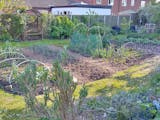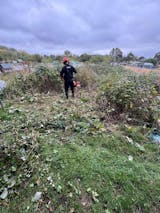Superb calendar. All the "extras" such as first and last sowing dates are extremely useful. Mintie of course is worth the price of admission on her own, plus there's more good advice in just a view pages than in many a gardening book! Looking forward to spreading my home-made compost very soon and having another very successful year of no-dig vegetable growing.
I can't recommend this course highly enough. We are just starting our new allotment plot and building it entirely around the no dig method. Charles Dowding's online course has been absolutely amazing. It provides clear, step-by-step explanations for everything, which has been perfect for us. It has given us both the practical skills and, just as importantly, the confidence we needed to progress with our project. It's an invaluable resource for anyone looking to start their own no dig journey.
As a relatively newbie to the vegetable garden I found myself mega motivated to make the most of my small garden. Amazed at the wealth of knowledge laid down in this book and I for one will be glued to it. First job a small greenhouse, then we’re off!!







